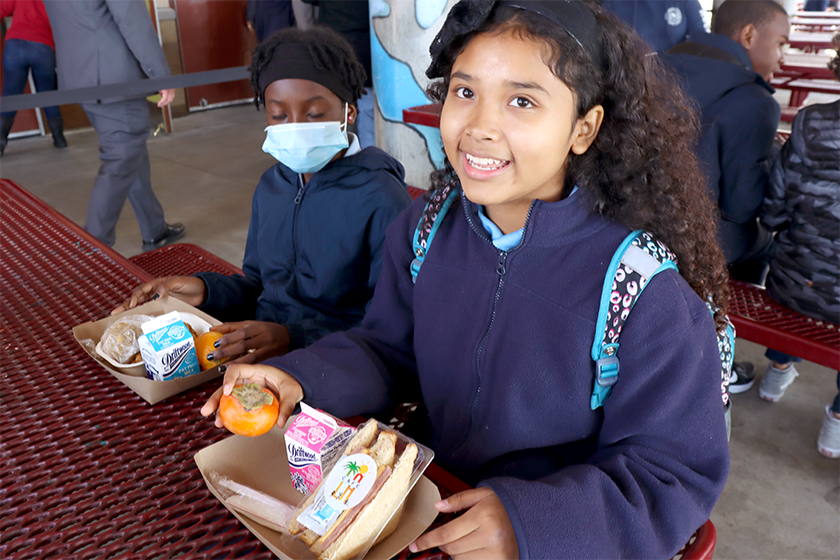User login
California’s School Meals for All Program Proves More Students Eat When Meals are Free

California’s School Meals for All Program Proves More Students Eat When Meals are Free
PRESS RELEASE
BERKELEY, CA (September 14, 2023) – California schools served 826 million meals during the 2022–23 school year, the first year of the state’s School Meals for All program that guarantees free breakfast and lunch for all K–12 public school students.
The preliminary data from the California Department of Education also show that California schools outpaced other states: California served two million more school meals in 2022–23 than in 2018–19, compared to a decline of 270 million meals in the rest of the country.
Research shows that in addition to increasing student participation, universal school meals improve student diet quality, attendance rates, and academic performance.
“Our first-in-the-nation Universal School Meals program and innovative Farm to School initiative are key aspects of California’s family agenda and emblematic of our commitment to California children and families,” said First Partner Jennifer Siebel Newsom. “With 826 million free school meals served to students last year—despite a decline of 270 million meals nationally—California continues to demonstrate the benefits to families, public health, and the economy when we invest in the well-being of our youth.”
In 2021, the Center for Ecoliteracy co-sponsored legislation led by Senator Nancy Skinner that made California the first state in the nation to pass universal school meals. Since then, an additional seven states have followed suit by enacting permanent policies, with several other states considering similar legislation.
“I championed California’s first-in-the-nation School Meals for All to ensure that all of our K–12 students are well-nourished and ready to learn,” said Sen. Skinner, D-Berkeley. “826 million meals is a testament to the success of this program and the commitment of California’s school nutrition professionals.”
“The Center for Ecoliteracy is proud to continue leading the charge to transform school food in California,” said Alexa Norstad, executive director of the Center for Ecoliteracy. “These results show us that when free school meals are prepared with fresh and local ingredients, they can be a game-changer during the school day. School Meals for All is a worthy investment in our kids, their families, and our state.”
In addition to providing free breakfast and lunch, California has made complementary investments to serve more locally-sourced, freshly-prepared meals to the state’s 5.9 million public school students. Since 2021, California has allocated $750 million for kitchen infrastructure and staff training, $100 million for school food best practices, $94 million for farm to school programs, and $45 million for workforce development.
“Now that free school meals are available to all students, I’m serving more breakfasts and lunches than ever before,” said Kat Soltanmorad, RDN, director of food and nutrition services at Tahoe-Truckee Unified School District. “California’s investments in school nutrition programs have allowed me to serve more fresh, local food.”
“Before the pandemic, it wasn’t the norm to eat school meals. Now, it’s expected for everyone to go to the cafeteria to eat,” said Anahi Nava Flores, a student at Mt. Diablo Unified School District. “More people are getting school lunches—the lines were never this packed last year! The taste and the quality have drastically improved.”
“I have found free school meals to be a huge relief,” said Deb Hong, a San Francisco Unified School District parent. “I don't have to spend time planning and preparing a healthy lunch. I can focus on getting the kids off to a good start.”
With students back in school, and the School Meals for All program in its second year, the Center for Ecoliteracy is continuing to support schools across California to serve more locally-sourced, freshly-prepared meals.
—
Contact:
Anne Moertel, Center for Ecoliteracy
- image_left0
